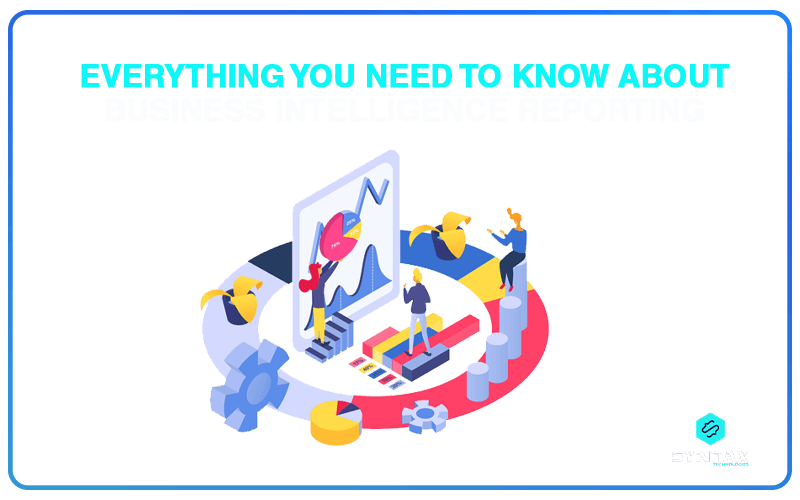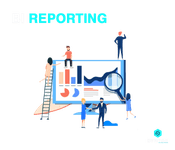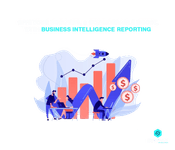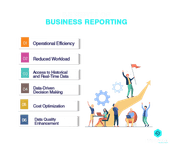In God We Trust, All Others Must Bring Data. – W. Edwards Deming (American Engineer and Statistician)
The given statement establishes the role that data plays in providing credibility to any piece of information. When this piece of information based on concrete data is presented in the form of comprehensible form, they take the shape of reports.
If Business Intelligence is the conversion of raw data into actionable insights for directing business decisions; Business Intelligence Reporting can be seen as the tracking of that data in order to present it in the form of understandable Data Visualizations (reports, dashboards, data alerts and so on).
In this blog, we will try to understand the basic concept of Business Intelligence Reporting, look at the different BI Reporting Tools as well as consider the goal and benefits of Business Reporting.
For a more detailed understanding of the overall concept of Business Intelligence, refer to our blog on What is Business Intelligence?
What is Business Intelligence Reporting?
Business Intelligence Reporting refers to the process of using Business Intelligence Reporting Tools for the purpose of creating reports and visualizing data through different modes of Data Visualization.
As far as Business Reporting is concerned, visualization can be understood as graphical representation of information derived through Data Analytics, in forms which are easily understandable by the end-users.
The mechanism of BI Reporting can be understood in the following manner. Business Intelligence Tools help in extracting data from different data sources which the Company relies on.
The Reporting BI Tools are so designed that they are able to recognize measurements (revenue, sales and so on) and apply dimensions (customer information, date and so on), for the purpose of analysis. Individuals who seek to create business intelligence reports can easily choose the desired measurements and dimensions.
Depending on the data analysis chosen, different graphical representations along with forecasting models can be created.
Furthermore, the overall idea of a Business Intelligence Report has evolved considerably overtime. From the time of BI Reports which were largely static, Business Reporting has become highly interactive in contemporary times.
The purpose of this change has been the desire to facilitate self-service BI and the creation of reports in the hands of non-technical end-users.
Thus, individuals can easily utilize the Business Intelligence Reporting Tools for Data Manipulation and consequently for the creation of smart BI Reports; which in the past was the sole responsibility of Data Scientists and Analysts alone.
What is the Goal of BI Reporting?
The moot idea of Business Intelligence is based on the notion of analyzing data for the purpose of deriving meaningful insights which could provide for data-driven decision making.
However, even when this analysis is undertaken by Data Analysts and IT Professionals; it would be meaningless if they are unable to convey their findings to the decision makers, executives and other stakeholders, who have the responsibility for deciding upon the future course of action. This is where Business Intelligence Reporting comes in.
By way of presenting the insights in digestible interactive forms, BI Reporting helps individuals visualize, understand, analyze and take decisions.
Moreover, BI Reports offer significant levels of interactivity which help in further filtering and sorting of data as well as self-service editing which can provide for additional exploration.
In terms of objective, Business Intelligence Reporting also helps in measuring and tracking the strategic goals of the business enterprise.
Categories of BI Reports
There are mainly two categories of BI Reports:
- Managed Reports: This is a form of a Business Intelligence Report which is essentially prepared by technical experts and employees such as IT associates and Data Analysts. This form of Business Intelligence Reporting is usually scheduled to be performed at regular intervals.
- Ad hoc Reports: These BI Reports are those which are prepared by technical as well as non-technical users. By way of invoking self-service BI solutions and smart Business Intelligence Reporting Tools, individuals can create new as well as edit existing reports, without essentially referring to the IT department.
Benefits of Business Intelligence Reporting
In this section, we will look at some of the advantages which come through BI Reporting. However, before we get into a formal listing of these benefits, let us try to understand the utility of Business Reporting through an analogy.
Consider yourself as one of players of a local club football team. Your team has participated in a prestigious tournament where other teams from all over the country have been invited too.
Your team happens to perform remarkably well and is ultimately able to book its place in the semi-finals. As a player, you must be well aware of the positives which played to the advantage of your team; however, it is equally important to understand that your pending opponent team is strong too.
So in order to prepare strategies for the semi-final, what do you do? You rely on DATA. Your team along with your coach will use data in the form of match videos and highlights in order to better prepare for the upcoming match.
Moreover, this data will also help your team to better understand the strategy of the opponent team as it has played in the past.
This simple example when applied at the level of business is what forms the crux of Business Intelligence Reporting.
Your Company might be performing really well; however, acquiring data, analyzing it and presenting it in comprehensible forms which could guide business decisions, will only improve your chances for greater efficiency and productivity.
- Operational Efficiency: Business Intelligence Reporting carried out with the help of appropriate BI Reporting Tools can be crucial in streamlining the day to day operations of the business enterprise. By way of providing concrete data, actionable insights as well as first hand information, BI Reports not only help decision makers in taking prompt decisions, but also provides for efficiency and cost reduction. This can also be ensured through generation of reports which track the performance of the respective departments.
- Reducing Workload: The Business Intelligence Reporting Tools are so designed that they are meant to facilitate self-service BI through generation of ad hoc BI Reports by non-technical users. This can be a huge boon for the firms as it reduces dependency on the IT departments by a great measure. Moreover, when data professionals alone are burdened by the pressure to draw up reports, it only results in creating bottlenecks in the workflow. This problem can be addressed through Business Intelligence Reporting.
- Historical and Real-Time Data: Comprehending huge volumes of data over considerable lengths of time can seem to be a challenging task. However, the smart Reporting Tools help in generating and processing all the information that a Company needs in a jiffy. Moreover, these BI Reporting Tools help in extracting data in real-time which means that any change over time can easily be tracked as well as kept account of. In fact, the increasing sophistication of Business Intelligence Reporting has provided for the incorporation of alarms and signals which can provide warnings in case of any business anomaly.
- Data-Driven and Informed Decision Making: A Business Intelligence Report is ultimately meant to serve a purpose. They provide valuable information and insights in understandable forms to the decision makers. Be it, Managed BI Reports or Ad hoc ones, Business Reporting helps in replacing decisions made by gut instincts with those based on predictable hard core facts. Since Business Intelligence provides for improved understanding of customer needs and preferences, decisions based on BI Reports are most likely to resonate with the needs of the consumers.
How to Choose BI Reporting Tools
There are a number of Business Intelligence Reporting Tools in the market. Each of these Reporting Tools professes to be the best BI solution that you would need.
However, before investing into them, it is important that you are able to develop a thorough understanding of their core features in terms of usability, functionality, connectivity, predictive analytics and so on. It would be important to gather as much information as possible from the vendors.
It is not simply enough to keep tabs on the different BI Reporting Tools, but it is equally important to develop a fair understanding of the needs of your firm as well as the resources at your disposal in terms of budget.
Your specific requirements will help you in choosing the appropriate Reporting Tools from among the various options available.
Types of Business Intelligence Reporting Tools
The list of BI Reporting Tools available in the market is pretty long. For the purpose of convenience, in this blog, we will look at five such popular Reporting Tools.
You can also read our blog on some of the best tools for Business Intelligence in general.
- Tableau
As a Business Intelligence Reporting platform, Tableau lays emphasis on Data Visualization and the graphical representations offered by it are increasingly pleasing and interactive.
It is extremely user-friendly and can be used by non-technical users for generating personalized dashboards and reports.
It provides a simple GUI with easy drag and drop options which can be used to share dashboards and tools, facilitating group analysis.
It comes with options of automatically updating data which helps in deriving insights from it in real-time. Through in-memory architecture, it supports Data Exploration and Data Visualization.
- Sisense
Sisense is considered to be one of those multipurpose BI Reporting Tools, which provides for acquisition, analysis as well as visualization of Data.
Its intuitive features provide for easy handling, while the tool facilitates Ad hoc analysis, Ad hoc queries as well as Ad hoc reports.
As one of the prime Business Intelligence Reporting Tools, Sisense has been known for simplifying the process of Data Analytics, for being readily available to be used in case of large datasets as well as for providing attractive visualizations.
- QlikView
This is considered to be one of the best BI Reporting Tools. Besides allowing individuals to visualize the entire story embedded within data, it also serves as an analytics platform, provides for interactive visualizations, simple reports as well as tools which help in external data feed.
Its GUI generates attractive and flexible Data Visualizations as well as instantaneous response to changes and interactions.
Apart from supporting multiple data sources, its hub feature also provides for sharing of appropriate data.
- PowerBI
It is one of the most popular Business Intelligence Reporting Tools which provides for aesthetic Data Visualization, along with integration and acquisition of data.
It offers services which include data preparation, interactive dashboards, visual-based discovery, augmented analytics as well as publication of reports on the Power BI platform.
It even provides for specific features which help in sharing of insights, for conducting analytical operations as well as in extracting data from old datasets.
- Yellowfin
This is considered to be an extremely useful BI Reporting Tools which facilitates end-to-end analytics by way of combining Machine Learning with Data Visualization.
It offers five main products: Yellowfin signals, dashboards, data prep, stories and data discovery. Yellowfin stories enable users to present data in the form of written narrative, images and video.
Conclusion
By the end of this blog, you must be convinced of the manifold advantages which Business Intelligence Reporting holds for business enterprises.
Besides facilitating the generation of understandable and comprehensive BI Reports, Business Reporting has the long term benefit of ensuring increased efficiency and productivity for firms through data-driven decision making.
There are endless possibilities for the acquisition of data and the secret lies in making prudent use of BI Reporting Tools for most strategic exploitation of the same.
We, at Syntax Technologies, provide you with an amazing opportunity to acquire a hands-on experience in learning the nitty-gritty of the Business Intelligence Reporting process, in handling the different Reporting Tools, as well as develop expertise in the overall field of Business Intelligence. Enrol now for our Data Analytics and Business Intelligence course. Read more:

